ICELAND – RESILIENCE ALL BUSINESSES CAN LEARN FROM
I typically write about customer focus and service or university and business school education. In this blog, I’d like to change direction. Because, I recently took a group of my Edinburgh MBA students on a study visit to Iceland, to explore business, culture and its impact on the country’s success. I was impressed and inspired by a country/people whose resilience is a lesson from which all businesses can learn. Let me share the visit.
Succeeding with little
Our first experience of the country was a tour around some of Iceland’s beautiful hotspots. Hot, because this is very much a live volcanic island. I’ll not bore you with travelogue, but, what we noticed was that there really is very little. No trees, not that much good farming land and just mile upon mile of nothing. What did the population actually do? The second day we started to find out.
Resilience and volunteering
Our first visit was to Ice-sar, Iceland’s Association for Search and Rescue. Over 1% of the population of the country volunteers for the organisation, needed because of harsh climate and terrain. This typifies the culture. The organisation is not publicly funded and volunteering is not cheap, with kit etc. to purchase. But this typifies a culture – where everyone pitches in and gets things done. This set the scene. Resilience and involvement.
The lesson for business? A culture of volunteering contributes to the common good and in this example sees all echalons of society working together.
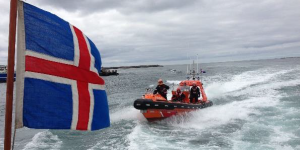
Resilience and making do with what you’ve got
Our next visit was to Ocean Cluster. Here we saw the resilience culture applied to business philosophy. Ocean Cluster is a hub for small companies interested in creating businesses out of anything to do with the sea. A mixture of thermal, sea, current and of course fish. These are some of Iceland’s few natural resources. Seventy companies now make up the hub, offered cheap rents, networks and in certain circumstances, investment. There are no government subsidies. Entrepreneurs just get on with it. We saw some fascinating products including wound dressings made from cod derivatives and all sorts of ways to use 100% of a fish rather than 30% used in most countries. Again, resilience and an ability to leverage scarce resources. Ocean Cluster’s success has taken it across the Atlantic – it now has hubs in the US.
The lesson for business? Great creativity and entrepreneurial spirit can make a virtue out of limited resources
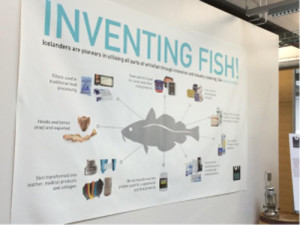
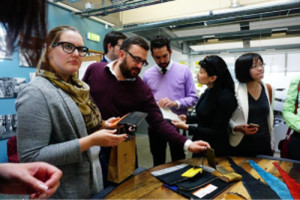
Some of the group at Ocean Cluster
Resilience and lack of natural resources – met with creativity and drive
The next organisation that we visited was Ossur. If you’ve ever watched the Paralympics, you’ll be very aware of blade runners, those fascinating extensions that sprinters use. Where did they come from? From Ossur in Iceland. It’s an organisation that’s absolutely focused around improving lives through innovation in prosthetics. How did it start? An Icelander, an amputee, wanted to find ways of improving mobility and in the spirit of Iceland, improve people’s lives – make money/do good. Traditional prosthetics were rudimentary and not especially helpful. We saw innovation through bionics which really make the difference. The company now has a global turnover in excess of $10m. Its origins were resilience and innovation.
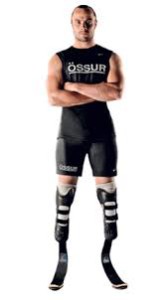
The lesson for business? Great creativity and entrepreneurial spirit can completely replace limited resources!
Resilience – turning disaster into success – now!
The final organisation we went to see was the Icelandic tourism board – “Promote Iceland”. Yes we learnt about the different attractions within the country, many of which we had seen and also about use of resources – the country has a booming winter tourism industry, despite little natural daylight and no major ski resorts. But we learnt something else. The 2008 financial crisis was a challenging time for Icelandic tourism, indeed the country nearly went bankrupt. That was then “complemented” by the huge eruption of the Eyjafjallajokull Volcano (you might remember the impact it had on flights around the world) at the start of the summer tourism season. Most regions would have just written off the season. Promote Iceland and related stakeholders did not. Within weeks they’d created a dynamic publicity campaign and once the eruption had slowed, the summer season was a great success. They weren’t prepared to let things happen. They made things happen instead.
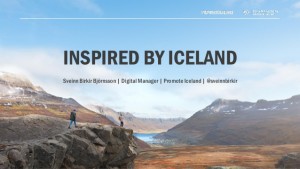
The lesson for business? Disaster does not have to be terminal. The winners don’t wait, they create
Our short visit was enlightening. And what are the key learnings?
1. Make use of all the resources you have – it’s surprising what they will deliver.
2. Be resilient. Don’t rely on somebody else or some government organisation providing the training, the funds or whatever to actually get your idea into commercialisation. It’s not always necessary.
3. In times of crisis, it’s a matter of working together and working fast. Turnarounds can be effected very quickly – the problem is that in many countries, we just expect a problem to take months or even years to resolve.
4. Culture really matters, in this instance working together for the common good.
Julian Rawel is chief executive of Market Echoes and interim director of MBA programmes, University of Edinburgh Business School. Market Echoes offers a common sense approach to business building.
